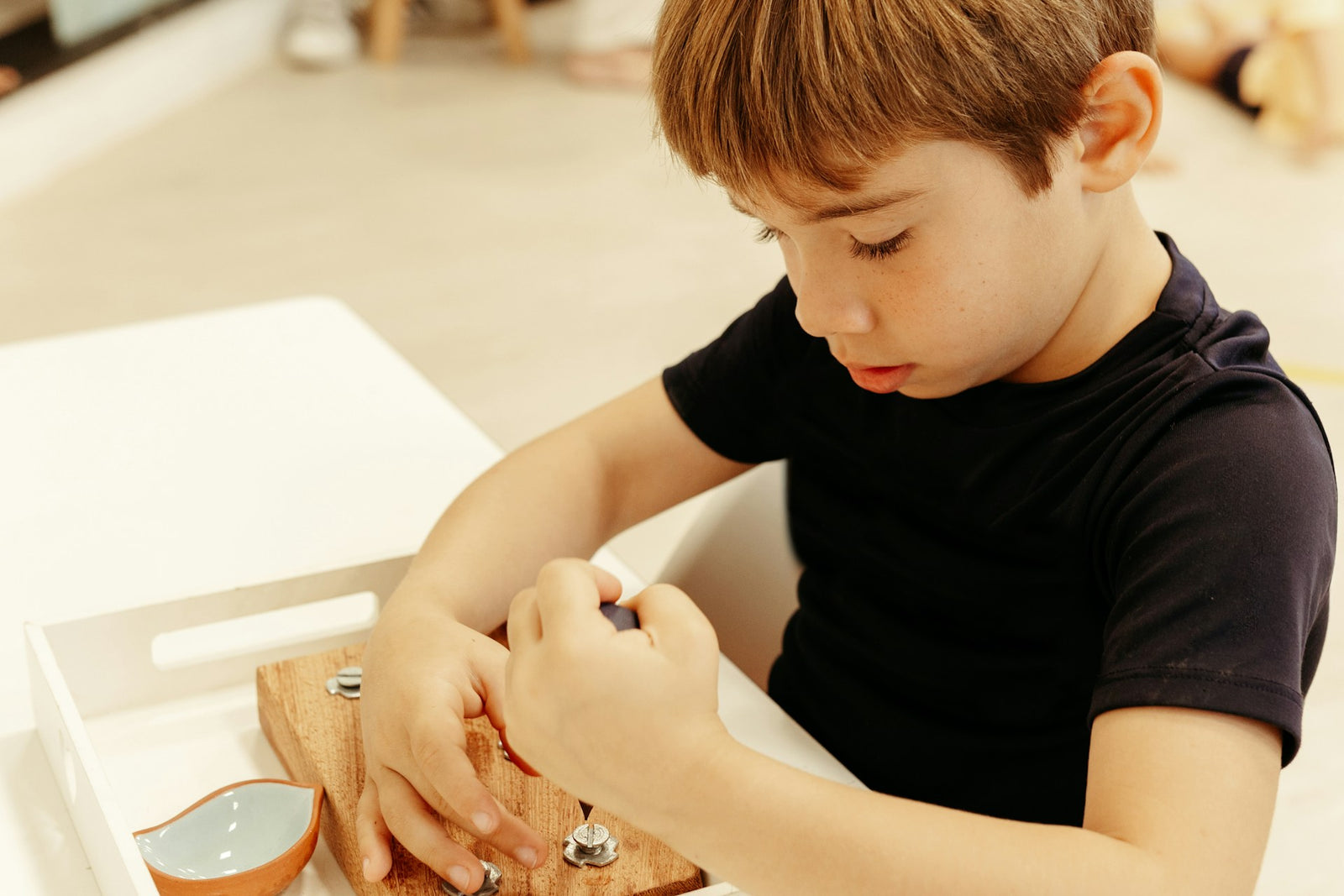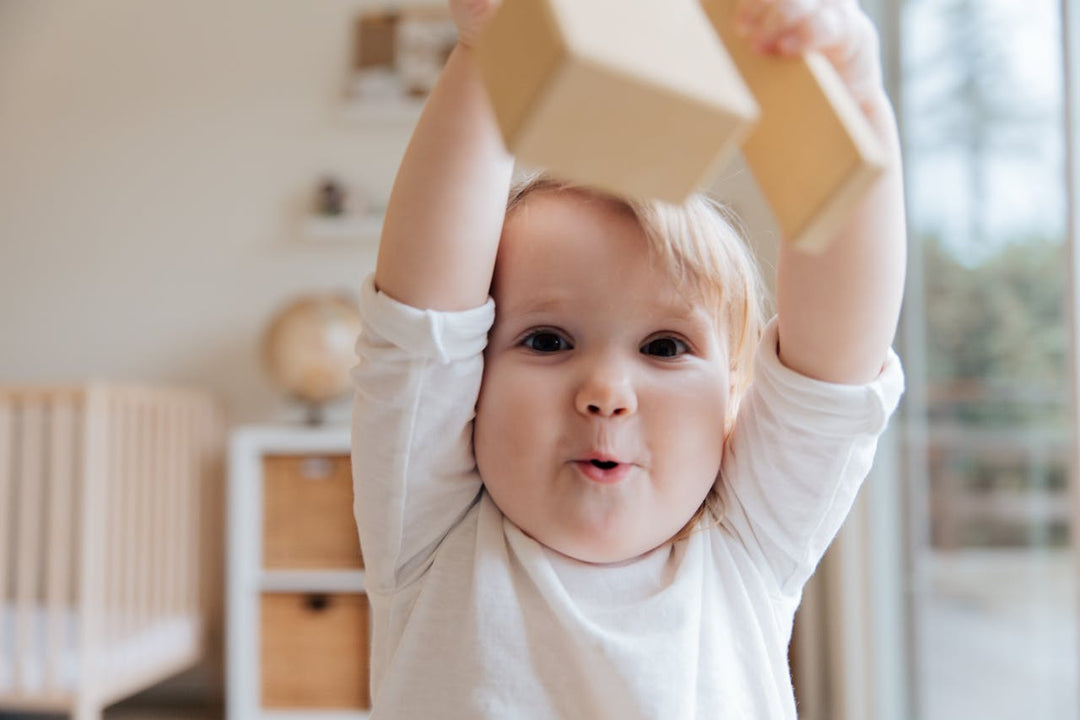Montessori at Home: Practical Life Activities for Babies and Toddlers

Montessori education offers a unique and holistic approach to child development, with an emphasis on fostering independence and practical life skills from an early age. For parents seeking educational activities that align with the Montessori philosophy, Topponcino Company is dedicated to providing helpful and engaging content to enrich your baby or toddler's at-home learning experience.
In our comprehensive guide to Montessori-inspired practical life activities for babies and toddlers, we delve into the world of purposeful play and self-care exercises designed to nurture young minds and encourage autonomy. Drawing from Montessori best practices, our guide offers a treasure trove of age-appropriate activities that will capture your little one's curiosity while developing essential fine motor skills, self-sufficiency, and problem-solving abilities.
Creating a Montessori-Friendly Environment for Babies and Toddlers
Setting up a Montessori-friendly environment at home is crucial for inspiring a love for learning and laying the groundwork for child-centric activities. Adhere to these principles when creating your Montessori space:
- Accessibility: Design a space where your child can access toys, games, and materials with ease, promoting independence and self-driven exploration.
- Simplicity: Simplify your child's environment, selecting a few purposeful and developmentally appropriate activities to minimize distraction.
- Safety: Ensure your at-home Montessori space is child-proofed and safe for exploration, providing a secure environment for learning and play.
Essential Practical Life Activities for Babies (0-12 months)
In the first year of life, babies develop a multitude of essential skills to support their growth. Encourage autonomy and active engagement through these practical life activities for babies:
- Treasure baskets: Create a sensory-rich treasure basket containing objects of varying textures, shapes, and materials. Allow your baby to explore and manipulate the items, fostering curiosity and fine motor skills.
- Tummy time activities: Incorporate Montessori-style tummy time, using colorful toys or mirrors to stimulate visual focus and encourage movement.
- Stacking and nesting: Provide stacking cups, bowls, or blocks for your infant to practice grasping and hand-eye coordination.
Emerging Practical Life Skills for Toddlers (12-24 months)
As toddlers begin to develop more sophisticated motor skills, these Montessori-inspired activities serve to encourage independence and problem-solving abilities:
- Dressing frames: Create or purchase dressing frames featuring buttons, zippers, and snaps to help your toddler refine their motor skills while mastering self-care tasks such as dressing and undressing.
- Transferring and pouring: Set up a Montessori-inspired transferring station, allowing your toddler to practice pouring water or dry items like beans, rice, or beads between containers. This activity enhances hand-eye coordination and focus.
- Preliminary utensil use: Encourage your toddler to start serving meals independently by providing child-sized utensils and offering them opportunities to practice with soft foods like yogurt or applesauce.
Advanced Practical Life Skills for Toddlers (24-36 months)
As your toddler gains more confidence and mastery over their motor skills, introduce these more advanced Montessori practical life activities to challenge their abilities further:
- Food preparation: Guide your child in simple food preparation tasks like peeling bananas, spreading butter or jam, and stirring mixtures. These activities contribute to their self-care skills, boost confidence, and foster a sense of accomplishment.
- Basic cleaning tasks: Introduce your toddler to age-appropriate cleaning tasks such as wiping spills, putting toys away, and washing hands. These activities maintain a clean and orderly Montessori environment while teaching responsibility and independence.
- Gardening: Encourage your toddler to partake in gardening activities like planting seeds, watering plants, and harvesting vegetables. These tasks instill a sense of responsibility and respect for the environment.
Establishing Routines and Encouraging Consistency
Consistency and routine are vital elements of Montessori education that extend to practical life activities. Implement the following strategies to maintain regularity:
- Create a daily routine: Establish a predictable daily schedule for your child that includes time for focused, practical life activities, fostering a sense of security and stability.
- Follow the child's interests: Pay attention to your toddler's innate interests and build activities around them. By engaging in activities that intrigue them, your child will be more motivated to learn and explore.
- Adjust activities to your child's developmental stage: Continually assess and modify activities to align with your child's unique developmental abilities and needs, ensuring they remain challenged without becoming overwhelmed.
Conclusion
Fostering independence, fine motor skills, and self-care abilities through Montessori-inspired practical life activities provides your baby or toddler with the foundational skills needed for future success. By embracing the Montessori approach and tailoring activities to your child's developmental stage, you'll create a nurturing and stimulating environment that supports personal growth.
That said, if you are looking for Montessori products and more to give your child the best headstart in life, check out what we offer today at The Topponcino Company.











